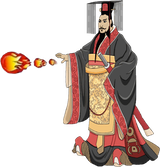I've recently read"The Verge: Reformation, Renaissance, and Forty Years that Shook the World" and want to hear what all of you think the answer is, because I feel like the book was missing something in its thesis and I am not very sure what that is.
I've recently read"The Verge: Reformation, Renaissance, and Forty Years that Shook the World" and want to hear what all of you think the answer is, because I feel like the book was missing something in its thesis and I am not very sure what that is.
Thank you for that perspective, I didn't realize steampower was that dramatic, but you framed it well.
even in the first opium war a british and qing infantryman were relatively the same technologically, both just dudes with muskets (the Qing military was really declining at the time and their best troops were on the borders, which is why they sucked in the actual engagements), but the steamers ran roughshod over the navy & supported the infantry, which didn't operate very far away from shore.
That’s fascinating, is there a book you read in particular that covered this well?
lol almost all the Qing stuff i've read is from the resident Qing-head on askhistorians. it's not a particular interest of mine, but here's a thread they did on the opium war with a meaty bibliography
A Reddit link was detected in your comment. Here are links to the same location on Teddit and Libreddit, which are Reddit frontends that protect your privacy.
🤖 🔥
What a good bot
Steam power is insane outside of boating. Before all the work in your society must come from potential energy stored in food. After steam you could get free work out of rocks.
i hate to be a pedant but wind and water were also good power sources prior to steam
True but they couldn't scale on-demand as steam can. Still can't, but energy storage is the solution now.